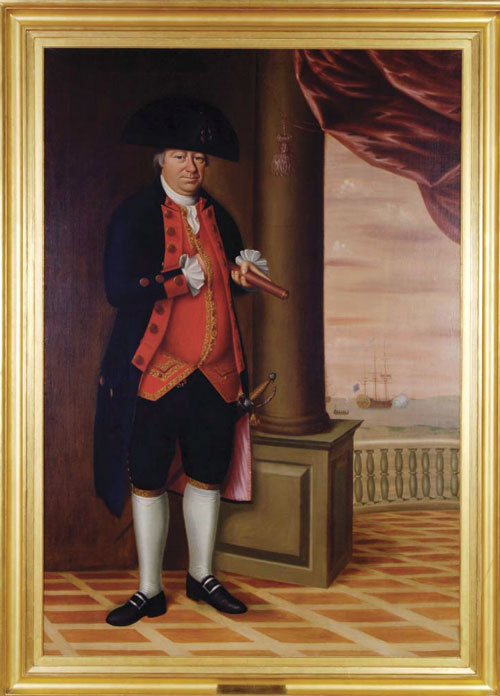
|
_____________
In this section of
Go to _____________ Books: American Colonial and
Revolutionary War history or the people involved. We have suggestions
for you.
Copyrighted.
© 2005
to
03/17/2010
Leonard H. Bucklin.
-----
The
content of this site may not be reproduced except for brief excerpts for
reviews or scholarly references..
_____________
This is a history education and
research web site of the
|
Commodore Abraham Whipple, Continental NavyScroll down for a short biography of the Commodore's naval career.
Abraham Whipple was born on 26 September 1733 near Providence, Rhode Island. As a young man he first went to sea with the shipping firm operated by the Brown family of Providence. Whipple advanced to become one of the Browns' ship masters in the trade between Rhode Island and the West Indies . During the French and Indian War he commanded the Joseph Brown' privateer Game Cock. By the time that war ended, in 1763, Whipple had captured twenty-three ships for Brown. On 15 June 1775, The Rhode Island General Assembly appointed him Commodore of the Rhode Island State Navy, the first of the state navies authorized by the United States Congress. As a Rhode Island commander, he attacked and captured the tender of HMS Rose, then took the Rhode Island State sloop Katy to Bermuda to obtain gunpowder. Upon returning on this voyage, he delivered the Katy to Philadelphia, where she was recommissioned as the United States Continental sloop Providence. A Continental Navy was started by Congress by the end of 1775, and Wipple was commissioned a Captain in the newly established Continental Navy on 22 December 1775. He was given the command of the 24-gun frigate Columbus, which participated in the raid on the Bahamas in March 1776. In 1778, he commanded the 28-gun frigate Providence on a voyage to deliver dispatches to France and returned with munitions. He then commanded a squadron of three vessels operating off Newfoundland, Bermuda, and finally Charleston, where he participated in the four-month defense of that city. The defense was unsuccessful and Charleston was surrendered. Whipple was made a prisoner of war and then paroled home on the promise not to fight against the English further. He returned to Rhode Island, where he remained until 1788, when he migrated to the West to be one of the first settlers of Marietta.
See more facts about the Commodore at the Whipple family website. Also see there Sally D. Wilson's article, "Who Was Commodore Whipple?" (Links courtesy of Whipple.org)
|


